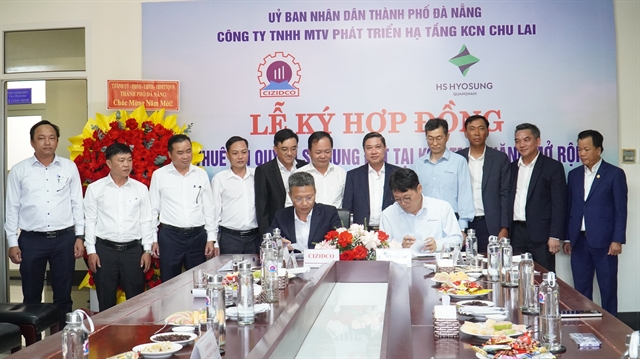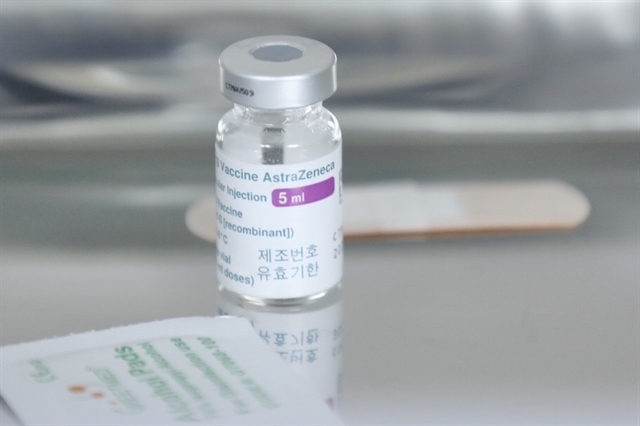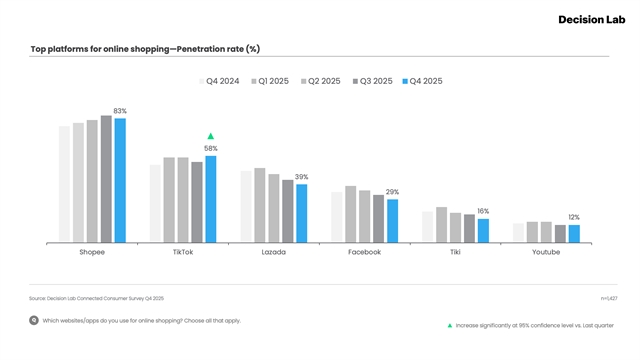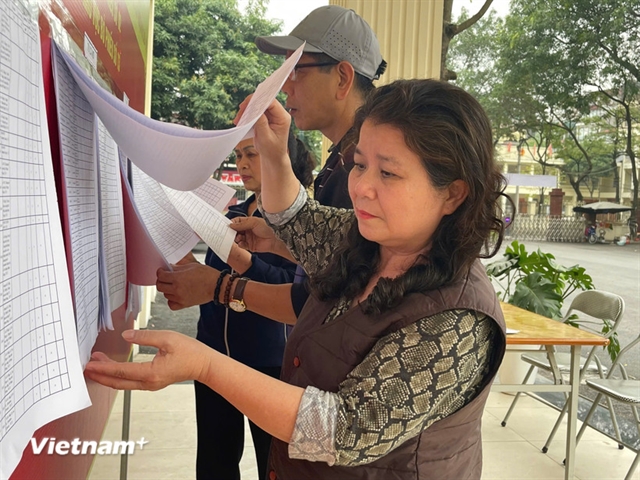 Society
Society

The first shipment of COVID-19 vaccines from the COVAX initiative to Việt Nam, originally slated for late March, has now been delayed til mid-April due to production issues, an UNICEF official has confirmed.

|
| A vial containing the AstraZeneca vaccine. — VNA/VNS Photo Minh Quyết |
HÀ NỘI — The first shipment of COVID-19 vaccines from the COVAX initiative to Việt Nam originally slated for late March has now been delayed until mid-April due to production issues, a UNICEF official has confirmed.
Rana Flowers, UNICEF Representative to Việt Nam, which is responsible for the procurement, transport, storage, and delivery of the vaccines, told Việt Nam News on Wednesday that 811,200 Oxford/AstraZeneca vaccine doses – fewer than the original plan of 1.1 million doses for late March – are scheduled to arrive in the country in the next three weeks.
Around three million more doses will be arriving by the end of May, pending operational and supply constraints, a statement from UNICEF Việt Nam reads.
Commenting on the adjustment of delivery date and initial quantity of COVAX vaccines to the country, Rana Flowers said the company has not been able to fulfil “the number they have predicted, and that they are going more slowly at this point in time.”
The number of doses that COVAX initiative has hoped to distribute is at the moment late and "recalibration" is needed to ensure equitable access among the countries they are trying to reach, the UNICEF representative said.
“We have clearly communicated with the Vietnamese officials that the scenario changes every day and therefore a firm commitment can only be given within 24 hours prior to the shipment arriving,” she added.
The UNICEF official added that the COVAX Facility is confident they will be able to deliver the full commitment of 30 million doses this year to realise its promise of giving enough doses for 20 per cent of the population, but the detailed delivery timeline after May is not yet available.
AstraZeneca is boosting its production in many countries across multiple continents to shorten its lead times so a greater supply can be expected in from all of those facilities, Rana said.
“It’s just taking them a bit longer to get those production facilities off the ground than AstraZeneca had predicted,” she added.
Đặng Đức Anh, director of National Institute of Hygiene and Epidemiology and head of the National Expanded Programme on Immunisation, has also confirmed that the 29.87 million doses of Oxford/AstraZeneca vaccines that the Vietnamese Government purchased from the manufacturer via Việt Nam Vaccine Company (VNVC), with first shipments initially planned for second and third quarter of 2021, will be postponed.
The limited number of vaccine manufacturing plants meeting the standards of WHO leads to current shortage, Đức Anh said.
Việt Nam started its national COVID-19 vaccination drive earlier this month with 117,000 doses bought commercially from AstraZeneca with frontline workers first in line to receive the jabs.
Nearly 38,000 people have been vaccinated as of Tuesday, and no severe abnormal side effects have been observed.
Việt Nam is also banking on homegrown COVID-19 vaccines, not only to serve the domestic demands but also to export the surplus to other countries.
The frontrunner among the three currently being developed in the country, Nano Covax by Nanogen Pharmaceutical Biotechnology, is undergoing second phase of human trials, with results expected in May.
The third and final phase of human trials is scheduled to take place around May to September, and registration for circulation will be pushed forward to September, three months earlier than planned. — VNS




